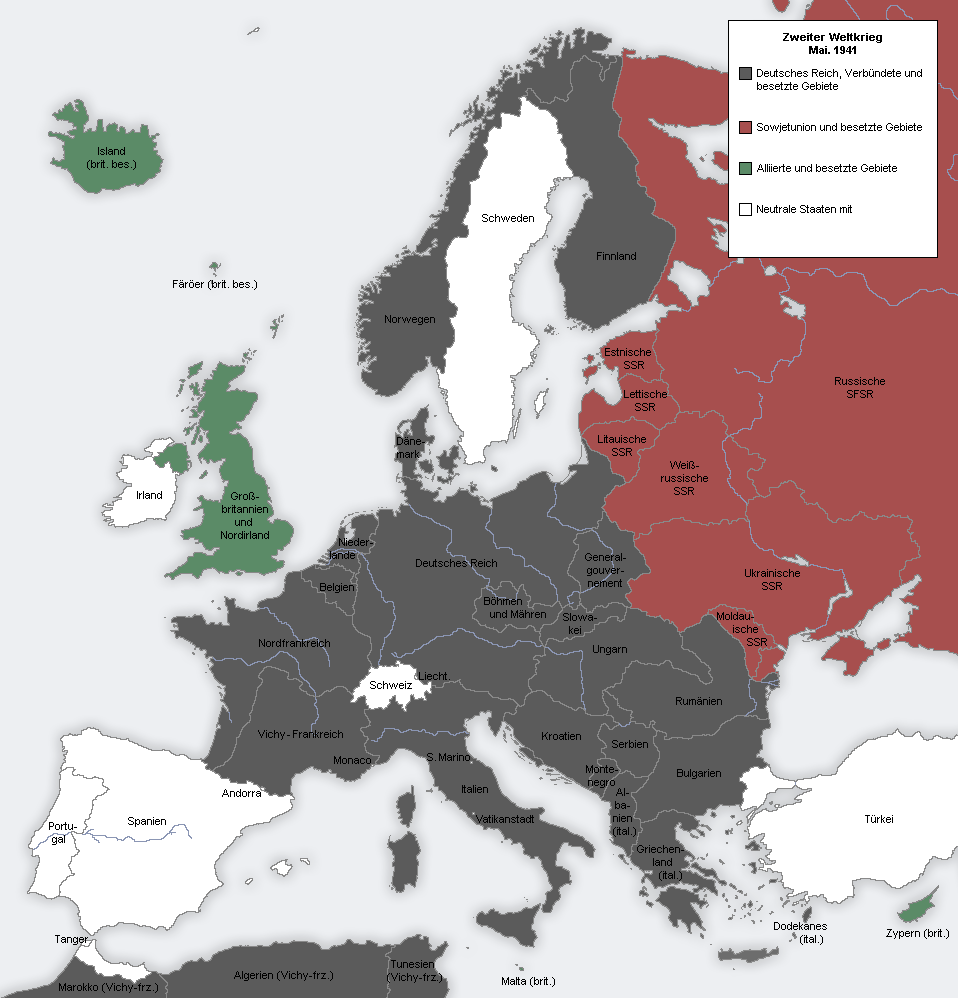The opinion of different scholars at the time when the Germans were at the gates of Moscow they had again lost the War because the Soviet economy was producing more than the entire economy of the territories occupied by the Germans. The Germans had a modern industry with an advanced technologies and also a very strong army with a very high destructive power. But in the end who decided it was quantity, not quality.
To simplify a bit, German industry produced 100 tanks, Soviet industry produced 150 tanks. The German army can destroy 130 Soviet tanks, while the Red Army can destroy only 100 german tanks.
Of course the explanation is illustrative purpose, but things are so.
Despite the estimations held by Hitler and others in the German high command, the Soviet Union was by no means weak. Rapid industrialization in the 1930s had led to industrial output second only to that of the United States, and equal to Germany.
[citation needed] Production of military equipment grew steadily, and in the pre-war years the economy became progressively more oriented toward military production.
Mikhail Tukhachevsky, one of the prominent military theorists in
tank warfare in the interwar period, lobbied the
Kremlin for colossal investment in the resources required for the production of weapons in mass quantities. In 1930 he forwarded a memo to the Kremlin, pressing the case for "40,000 aircraft and 50,000 tanks".
[74] In the early 1930s, a very modern operational
doctrine for the Red Army was developed and promulgated in the 1936 field regulations, in the form of the
Deep Battle concept. Defense expenditure also grew rapidly: by 1933 it had reached 12 percent of
gross national product, from 5.2 percent in 1913; and by 1940 it stood at 18 percent.
[75]
In some key weapons-systems, however, the Soviets had a considerable numerical advantage. In tanks, for example, the Red Army dominated overwhelmingly in numbers. They possessed 23,106,
[83] of which about 12,782 were in the five Western Military Districts (three of which directly faced the German invasion front).
Adolf Hitler later said "If I had known about the Russian tank's strength in 1941 I would not have attacked".
[84] However, maintenance and readiness standards were very poor; ammunition and radios were in short supply, and many units lacked the trucks needed to carry supplies.
The German
Wehrmacht had about 5,200 tanks overall, of which 3,350 were committed to the invasion. This yields a balance of immediately available tanks of about 4:1 in the Red Army's favor. However, the most advanced Soviet tank models, the T-34 and
KV-1, were not available in large numbers early in the war, and only accounted for 7.2 percent of the total Soviet tank-force.
The Soviet numerical advantage in heavy equipment was also more than offset by the greatly superior training and readiness of German forces. The Soviet officer corps and high command had been massacred in Stalin's
Great Purge (1936–1938). Out of 90 generals arrested, only six survived the purges, as did only 36 out of 180 divisional commanders, and just seven out of 57 army corps commanders. In total, some 30,000 Red Army personnel were executed,
[86] while more were deported to
Siberia and replaced with officers deemed more "politically reliable". Three out of the five pre-war
marshals and about two-thirds of the corps and division commanders were shot. This often left younger, less experienced officers in their places. For example, in 1941, 75 percent of Red Army officers had held their posts for less than one year. The average Soviet
corps commander was 12 years younger than the average German
division commander. These officers tended to be very reluctant to take the initiative and often lacked the training necessary for their jobs.
The number of aircraft was also heavily in the Soviets' favor. However, Soviet aircraft were largely obsolete, and Soviet
artillery lacked modern fire-control techniques.
[
One of the wise actions of the Russians was the displacement of industry beyond the Ural.
Franz Halder wrote in his diary in 1941:
[151]The whole situation makes it increasingly plain that we have underestimated the Russian colossus...[Soviet] divisions are not armed and equipped according to our standards, and their tactical leadership is often poor. But there they are, and as we smash a dozen of them the Russians simply put up another dozen. The time factor favours them, as they are near their own resources, while we are moving farther and farther away from ours. And so our troops, sprawled over the immense front line, without depth, are subject to the incessant attacks of the enemy.
[151]
| Units involved | |
|---|
| | |
| Strength | |
|---|
Frontline strength (June 1941):
3.8 million personnel (Axis)[3][4] 4,300 tanks[5]
4,389 aircraft[6]
7,200 artillery pieces[4] | Frontline strength (June 1941):
2.68[3]–2.9 million personnel[7]
Overall strength (June 1941): 5,500,000 personnel[3]
15,000–25,000 tanks,
35,000-40,000 aircraft (11,357 combat ready on 22 June 1941)[8] |
So what decides the fate of the war is the background.

